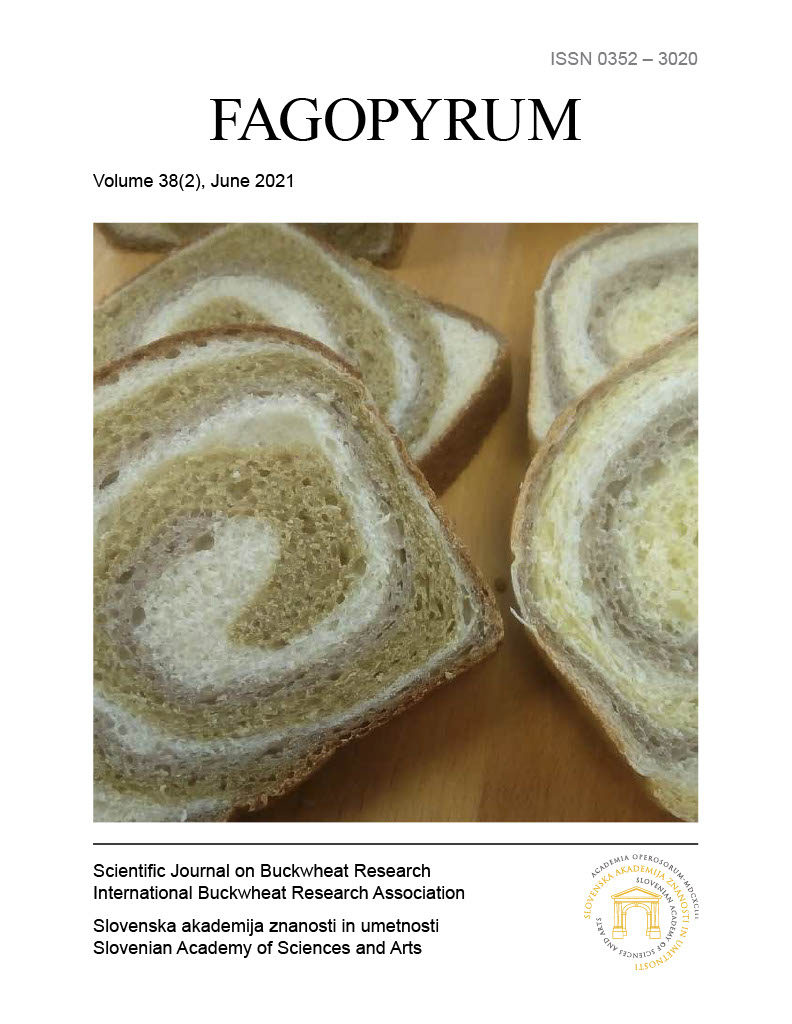The disappearance of vitexin from Tartary buckwheat flour-water mixtures after the hydrothermal treatment
DOI:
https://doi.org/10.3986//fag0020Povzetek
Vitexin is an apigenin flavone glucoside with known biological functions. This research reported the effects of initial temperature treatments of Tartary buckwheat flour mixture with water and time of methanol extraction from the cooked doughs on the amount of extractable vitexin. The mixtures of flour and water were initially hydrothermally treated at temperatures from 25 °C to 95 °C. Afterward the mixtures were cooked at 95 °C for 20 min, and vitexin extracted at room temperature with 80% aqueous methanol for 20 min, 2 h and 8 h. The extractable vitexin was extracted during the same extraction times for the control in the nonhydrothermally treated Tartary buckwheat flour-water mixture samples. For the cooked dough samples, the hydrothermal treatments were important in terms of the extractability of vitexin. The extractable vitexin persisted in the control samples during the extraction time up to 8 hours, while in the hydrothermally treated and cooked dough samples, there remained none detectable vitexin. The high-temperature initial treatments during dough preparation appeared not to prevent the degradation of vitexin in Tartary buckwheat flour.

